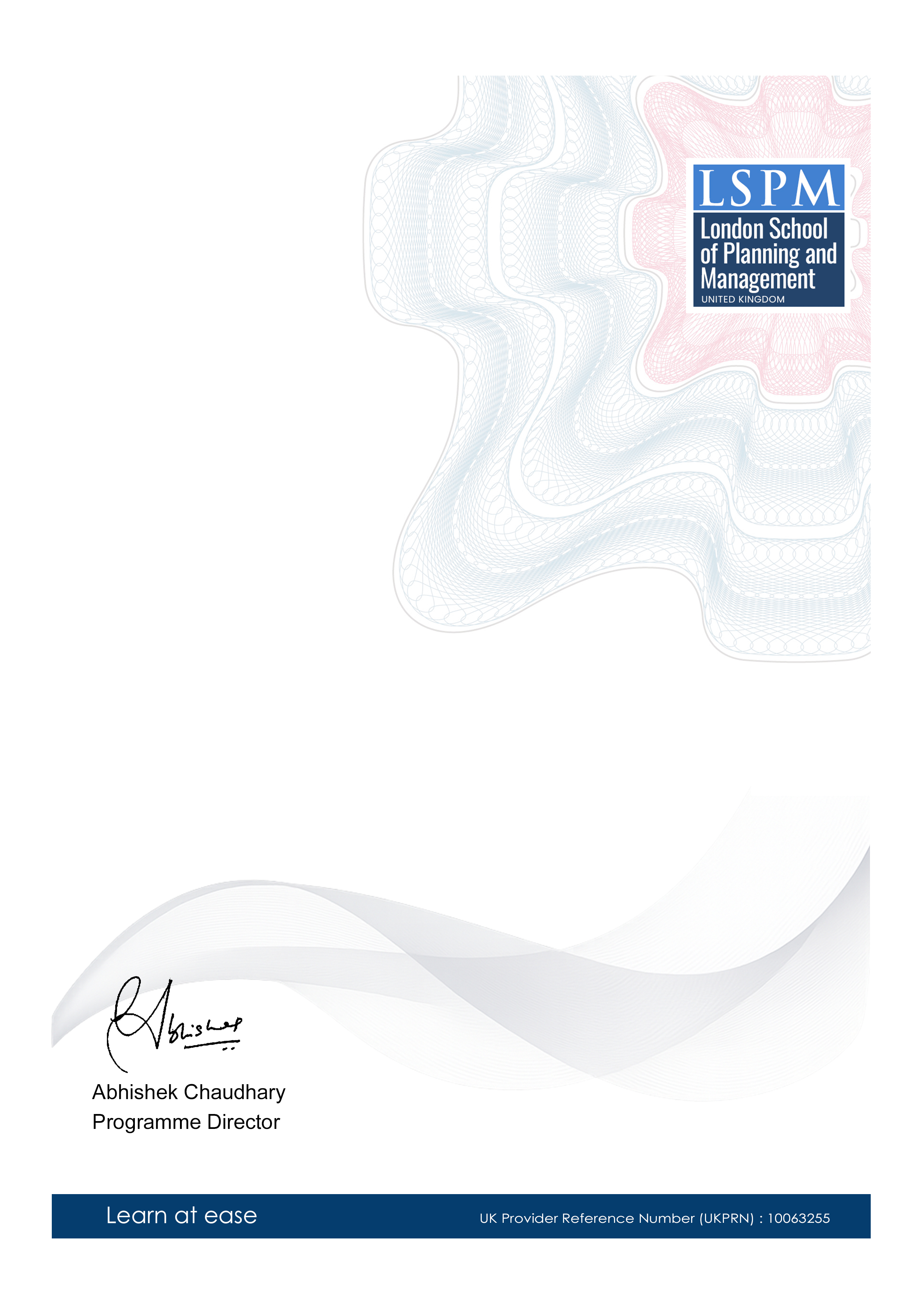Global Certificate Course in Urban Land Use Trends
-- viewing nowThe Global Certificate Course in Urban Land Use Trends is a comprehensive program designed to equip learners with essential skills to navigate the complex world of urban land use. This course is critical for professionals involved in urban planning, real estate, architecture, and government policy-making.
7,909+
Students enrolled
GBP £ 149
GBP £ 215
Save 44% with our special offer
About this course
100% online
Learn from anywhere
Shareable certificate
Add to your LinkedIn profile
2 months to complete
at 2-3 hours a week
Start anytime
No waiting period
Course details
• Global Urbanization Trends: Understanding the worldwide patterns and drivers of urban growth, including population shifts, economic forces, and policy implications.
• Urban Land Use Patterns: Examining the spatial organization of cities and metropolitan areas, including land use zoning, transportation systems, and housing markets.
• Smart Growth and Compact Development: Investigating the principles and practices of sustainable urban development, including mixed-use development, transit-oriented development, and affordable housing.
• Urban Form and Design: Exploring the physical shape and arrangement of urban areas, including building types, street networks, and public spaces.
• Geographic Information Systems (GIS) for Urban Land Use Analysis: Introducing the concepts and techniques of GIS for mapping, visualizing, and analyzing urban land use patterns.
• Climate Change and Urban Resilience: Assessing the impacts of climate change on urban areas and exploring strategies for building more resilient cities, including green infrastructure and low-impact development.
• Urban Planning and Governance: Examining the institutional and political context of urban planning and decision-making, including public participation, stakeholder engagement, and regulatory frameworks.
• Urban Economics and Real Estate Markets: Investigating the economic forces that shape urban land use, including property values, housing prices, and development costs.
• Equity and Social Justice in Urban Land Use: Exploring the social and economic disparities in urban land use, including housing affordability, transportation equity, and environmental justice.
Career path
Entry requirements
- Basic understanding of the subject matter
- Proficiency in English language
- Computer and internet access
- Basic computer skills
- Dedication to complete the course
No prior formal qualifications required. Course designed for accessibility.
Course status
This course provides practical knowledge and skills for professional development. It is:
- Not accredited by a recognized body
- Not regulated by an authorized institution
- Complementary to formal qualifications
You'll receive a certificate of completion upon successfully finishing the course.
Why people choose us for their career
Loading reviews...
Frequently Asked Questions
Course fee
- 3-4 hours per week
- Early certificate delivery
- Open enrollment - start anytime
- 2-3 hours per week
- Regular certificate delivery
- Open enrollment - start anytime
- Full course access
- Digital certificate
- Course materials
Get course information
Earn a career certificate

